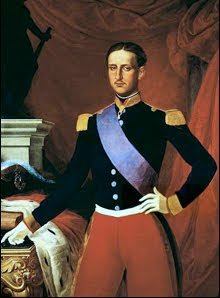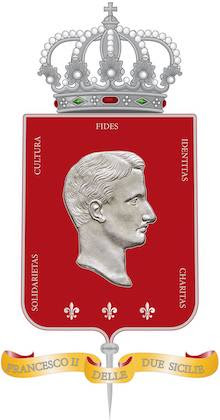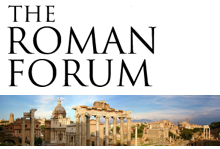 |
Burning of the frigate USS Philadelphia
in the harbor of Tripoli, February 16, 1804, by Edward Moran, painted 1897 |
“It would be unjust of me, were I to pass over the important services rendered by Mr. Salvatore Catalano, on whose conduct the success of the enterprise in the greatest degree depended.” – Lt. Stephen Decatur: writing in his official report on the burning of the Philadelphia; February, 1804.
Piracy is an ancient plague of mariners and coastal-dwelling peoples. For as long as men have taken to the seas in the name of commerce there have been those who have taken it upon themselves to prey upon them. The earliest mentions of pirates in history are found in the chronicles of the ancient Egyptians who spoke of the depredations of the “Sea Peoples” which disrupted the shipping lanes of the Eastern Mediterranean in the 13th century BC.
Early Greeks and Romans likewise frequently joined “the red brotherhood”. Later on, of course, when the Romans established themselves as the supreme power in the Mediterranean, piracy was brutally suppressed. After the fall of Rome, invading Norsemen, Slavs and Muslims revived the practice. In spite of often draconian measures by lawful powers, by the beginning of the 19th century piracy was still a major international problem.
In spite of the swill that has historically been spewed out by Hollywood, there is nothing “romantic” about pirates. They are by nature not only thieves, but rapists, slavers and murderers, as well! It is no accident that captured pirates were frequently the recipients of unpleasant deaths; they usually deserved it! In terms of rapaciousness and cruelty, there can be no question the worst pirates in history were the Barbary Corsairs; the pirates of central and western North Africa.
 For about 1,000 years, from the 9th to the 19th centuries, they preyed on peoples from as far south as Western Africa to as far north as Iceland. Thousands of European ships were destroyed by them. Modern historians estimate that between the 15th and 19th centuries anywhere from 800,000-1,250,000 Europeans were captured by these fiends, winding up at slave auctions in Northern Africa. Most of these hapless victims were from places like Spain, Sicily and Southern Italy. So many pirates raided Southern Italy and Sicily many if not most of the coastal regions of these areas (outside of large towns) were abandoned and not settled until the 19th century. In fact, some historians believe the present-day poverty of the Mezzogiorno is in part due to this legacy of piracy.
For about 1,000 years, from the 9th to the 19th centuries, they preyed on peoples from as far south as Western Africa to as far north as Iceland. Thousands of European ships were destroyed by them. Modern historians estimate that between the 15th and 19th centuries anywhere from 800,000-1,250,000 Europeans were captured by these fiends, winding up at slave auctions in Northern Africa. Most of these hapless victims were from places like Spain, Sicily and Southern Italy. So many pirates raided Southern Italy and Sicily many if not most of the coastal regions of these areas (outside of large towns) were abandoned and not settled until the 19th century. In fact, some historians believe the present-day poverty of the Mezzogiorno is in part due to this legacy of piracy.
The early years of the American Republic coincided with the wane of the Ottoman (Turkish) Empire. In earlier centuries, Northern Africa from what is now Egypt to Algeria was in thralldom to the sultans of Istanbul. By the beginning of the 19th century, however, the “Sick Man of Europe” was rapidly losing its control over these territories to local Berber despots who became the de facto rulers of their respective domains, anxious to rid themselves once and for all time of their Turkish overlords. Despite this, these Berber tinpot rulers had no problem continuing with the profitable and gruesome trade of piracy.
Though the Sultanate of Morocco ‘enjoyed’ a reputation as a haven for pirates, it alone of the Barbary States opened its ports to American merchant ships during the American Revolutionary War and offered them the sultan’s protection. Relations were formalized between Morocco and the United States in late 1786 with the signing of the Morocco-American Treaty of Friendship, which was formally ratified by the Continental Congress in July, 1787.
The other Barbary States, however, offered no such gestures of friendship, forcing the nascent republic to pay an annual tribute of $1 million. To give the reader a grasp of the enormity of that figure, in 1800 that represented fully 20% of the annual expenditures of the U.S. Federal government!
While John Adams was opposed to paying the tribute, nevertheless he felt there was nothing America could do until such time as a sizeable navy could be constructed to stop the pirates. Thomas Jefferson, on the other hand, felt that America’s future lay westward, and strongly spoke out against paying tribute of any kind.
From 1530 onward the Order of the Knights of Malta had fought the Barbary Corsairs throughout the Mediterranean, earning the enmity of the Ottomans and the respect and admiration of Christian Europe. Much ill-gotten pirate loot found its way into the coffers of the Order, aiding them in their never-ending war against the Corsair scum. Sadly, the Knights’ tenure on Malta ended in 1798 when Napoleon Bonaparte treacherously attacked the island, looting it and leaving behind a large garrison.
When Jefferson became President in 1801, the Pasha of Tripoli demanded an immediate tribute of $225,000. Deciding enough was enough, Jefferson refused to pay it, whereupon the Pasha declared war on America. In response Jefferson sent a group of frigates to the Mediterranean to protect America’s interests. While Congress never officially declared war, it passed a series of acts authorizing the President to use whatever means necessary to keep the Corsairs at bay.
In 1803 President Jefferson put Commodore Edward Preble, a hero of the American Revolutionary War, in charge of naval operations against the Barbary pirates. Toward this end he put him in command of the 3rd Squadron with the USS Constitution, a 44 gun frigate, as his flagship. Preble and his ships saw little action against the Muslim pirates. Apparently they preferred attacking defenseless merchant vessels and coastal towns to heavily-armed warships. In no time American vessels were able to affect a blockade off Tripoli.
On October 31st, 1803, the USS Philadelphia, a 38-gun frigate under the command of Captain William Bainbridge, gave chase to a Tripolitan gunboat. To the horror of captain and crew, the ship foundered on an unchartered reef off Tripoli harbor. All attempts to refloat the vessel while it was under fire from shore batteries and enemy gunboats failed. In spite of the fact his ship sustained no battle damage, Bainbridge surrendered. He and all the men on his ship were immediately made slaves of the Pasha.
The loss of the Philadelphia was a severe blow to American naval capabilities and prestige. A decision was made to either recapture the vessel or to destroy it. Under no circumstances would it be allowed to remain in the hands of the Barbary pirates! A mission was conceived to allow a small vessel filled with daring sailors to sneak into the harbor and board the vessel. Pivotal to the success of this mission was finding a pilot who spoke the fractured dialect of the Tripolitans and who was familiar with navigating through Tripoli harbor.
King Ferdinand I of the Two Sicilies allowed American vessels to moor in Naples and Palermo to aid them in their war against the Corsairs. During this time numerous Neapolitans and Sicilians signed up to work on board these ships to fight alongside the Americans against the hated common foe. It must be mentioned that in all my years studying Western Civilization and American history in school (before those subjects were basically expunged from the curricula) I never heard about these facts!
Commodore Preble had made the decision the Philadelphia had to be destroyed, since in his opinion it was too risky to try to save it. On February 3rd, 1804 the USS Intrepid, a small maneuverable boat, left Sicily to sail for Tripoli harbor. It carried 69 officers and men, including a squad of Marines, all hand-picked by Preble. It also carried pilot Salvatore Catalano and Lt. Stephen Decatur Jr., the ship’s captain and son of the man who had once captained the Philadelphia.
The Intrepid arrived at the entrance of Tripoli harbor on the night of February 10th. Pilot Catalano, sensing a change in the wind patterns, urged a delay. The men on the Intrepid, unfamiliar with the weather patterns of the Mediterranean, wished to proceed. Lt. Decatur wisely decided to call for a personal inspection of the entrance of the harbor.
Catalano was lowered into a small boat along with Midshipman Charles Morris, who acted as a second observer. Morris agreed with Catalano’s assertion the waters in the entrance were too rough to navigate safely. The crew of the Intrepid, however, was less than thrilled with the report. Their anger gave way to gratitude, however, when gale force winds whipped up shortly afterwards, forcing them to retreat to calmer waters. Had they proceeded against Catalano’s advice, there is no doubt the winds would have dashed their craft against the rocks, killing them all!
The storm would last five days. The Intrepid entered Tripoli harbor on the night of February 16th. Pilot Catalano was at the wheel dressed as a Maltese merchant. Lt. Decatur was right beside him, in similar disguise. On deck were six crewmen, dressed likewise. The rest were in hiding, armed to the teeth and ready to attack!
Up ahead Decatur and Catalano could see their prize: the Philadelphia! The ship was strategically place under the shore batteries of Tripoli harbor. As Catalano moved the Intrepid closer, the sentry onboard the Philadelphia called out to him in Tripolitan.
Anglo-American historians have gone out of their way to emphasize that in the ensuing dialogue between Catalano and the sentry that Decatur was giving Catalano verbal instructions. I shall go on record as stating that is an outright lie obviously meant to minimize the Sicilian’s vital contribution to the success of this mission! Such a conversation demanded quick thinking. Catalano certainly spoke little if any English at that point in his life and there is no record of Decatur being able to speak either Sicilian or Tripolitan. I might add nowhere in his official report did Decatur ever mention giving such instructions. Another slap in the face to our people by our so-called “friends”.
Catalano explained to the sentry that he and the crew were Maltese traders who lost their anchors in the storm. He asked for permission to tie his ship’s line to the anchors of the Philadelphia for the night. The sentry begrudgingly agreed.
The ruse worked! While Catalano kept the man busy with small talk, the crew of the Intrepid tied another line to the ring bolt on the bow of the ship, pulling their smaller craft alongside it, and immediately began boarding. By the time the sentry realized he’d been played for a fool it was too late; dozens of crewmen jumped onto the deck of the ship, Decatur and Catalano among them!
The ensuing fight was brief, lasting all of ten minutes. Most of the Tripolitans on the Philadelphia jumped into the water. Those that didn’t, 20 in all, were cut down.
Once in control of the ship Catalano thought it might be possible to take it and set sail. Lt. Decatur, however, hearkened to the orders of his superior officer and commanded the ship be destroyed in all due haste. As an experienced seaman it must have pained him in no small measure to destroy what was once his father’s command, but it is a testament to his discipline as a sailor he did not hesitate to put aside personal feelings and carry out his orders.
Within minutes the Philadelphia was in flames. The men literally dove onto the deck of the Intrepid to escape, Decatur being the last to arrive. The Intrepid set sail as the shore batteries of the Pasha opened up on them. Miraculously, they escaped with no casualties. The Intrepid itself was hit only once by cannon fire in one of its sails.
News of the success of this bold mission took the world by storm! The fledgling American Republic now earned respect in the eyes of military commanders across the globe. Britain’s legendary flag officer Horatio Nelson, when he heard of what happened, called it “…the most bold and daring act of the age.”
Upon their return to America, Congress voted to give Lt. Stephen Decatur Jr. a gold sword and promoted him to captain. Every man on the ship was given two months extra pay. Salvatore Catalano himself was rewarded with American citizenship. On August 9th, 1809 he was appointed a Sailing Master in the U.S. Navy. It would be a position he would hold until he died in January, 1846 in the city of Washington, DC.
The crew of the Intrepid produced several other notable figures in American history. James Lawrence, hero of the War of 1812 who is chiefly remembered for his battle cry of “Don’t give up the ship!” Charles Morris was called one of the ablest officers of his day.
Sadly, Stephen Decatur’s life would not be a long one. He was shot and mortally wounded in a duel with Commodore James Barron, though he only intended to wound his opponent. In what is a fitting epitaph, as he was carried off the field, he is said to have murmured: “I wish I could have died in defense of my country.” Though his funeral was attended by many of Washington’s elite, after his death the memory of his heroism at Tripoli dimmed considerably. The memory of the brave Sicilian, Salvatore Catalano, all but disappeared except in the most obscure texts.
Finally, how did America reward the considerable aid and friendship shown to it by the Kingdom of the Two Sicilies? I quote:
“A half century later Americans repaid the debt to Catalano in his own Sicily. William DeRohan of Philadelphia, through private subscriptions and voluntary donations, obtained supplies and equipment for Garibaldi’s expedition and shipped them to Genoa, where he transferred the cargo to three ships which sailed for Sicily under the American flag. The American minister, John Moncure Daniel, descendant of a signer of the Declaration of Independence, dispatched a message to Captain Palmer of the Iroquois, an American warship in the waters off Palermo, urging him to assure safe passage to these three vessels. They arrived in Palermo at the very moment that Garibaldi’s need was the greatest, enabling him to continue the battle until he captured enough of the enemy’s supplies to carry him to the ultimate triumph.” – Michael A. Musmanno: The Story of the Italians in America; pg. 267, Doubleday & Co. Inc., 1965.
The rest, as they say, is history. Sadly, this would not be the only time in history America showed such “gratitude” to its benefactors.
Further reading:
- Michael A. Musmanno: The Story of the Italians in America; pgs. 19-21, Doubleday & Co., Inc. 1965.
- Louis A. Lepis: Italian Heroes of American History; pgs. 51-55, Thomas J. Nunziata & Co., 1992.









